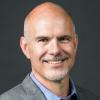Abstract
Deeper and more numerous social connections promote health, well-being, survival, and even financial success. By the same token, social exclusion and the loss of social partners result in feelings similar to physical pain. In my talk, I will discuss our work aimed at defining the biological mechanisms that mediate our ability and desire to connect and the impact of these capacities on resilience. We leverage a unique 14-year field study of thousands of free-ranging rhesus macaques and a biobank including genomic, neuroanatomical, and brain transcriptomic data, collected before and after a major cyclone, and parallel neurophysiological and pharmacological work in the laboratory. We find that monkeys who have more friends are more successful and show increased gene expression and structural connectivity within the social brain network, particularly the middle superior temporal sulcus (mSTS). Neurophysiological studies in our lab show mSTS neurons encode a rich array of strategic information necessary to guide social decisions like cooperation. Pharmacologically inactivating mSTS impairs the sophistication of social interactions. In the field, monkeys who lived through the cyclone showed upregulation of aging-related genes in immune and inflammatory pathways, accompanied by physical decline. Behaviorally, monkeys responded to the acute and chronic stress of the cyclone by becoming more social and less aggressive, and preliminary analyses suggest monkeys who made more social connections had higher survivorship after the hurricane. Current work aims to determine whether biological predispositions for social connections shape resilience to climate-induced stressors.
Biography
Michael Platt is a neuroscientist known for asking some of the most challenging questions in 21st century neuroscience - and conceiving innovative ways to find the answers. Principle questions focus on the biological mechanisms that underlie decision-making in social environments, the grasp of which has broad-scale implications for improving health and welfare in societies worldwide. Broad expertise in psychology, economics, evolutionary biology and ethology, in addition to collaborations with colleagues in these fields, have enabled him to reach ever-deeper levels of understanding about the neural bases of cognitive behaviour. Michael received his B.A. at Yale and his Ph.D. at the University of Pennsylvania, both in anthropology, and did a post-doctoral fellowship in neuroscience at New York University. His work has been supported by the National Institutes of Health, the Klingenstein Foundation, the McDonnell Foundation, the EJLB Foundation, Autism Speaks, the Broad Foundation, the Klarman Foundation, the Simons Foundation, and the Department of Defense, among others. He is winner of a MERIT award from the National Institute of Mental Health, the Williams Faculty Research Prize in the Duke University School of Medicine, and was an Alfred P. Sloan Foundation Fellow. He has given the Sage Lecture at UC Santa Barbara and has received the Astor Visiting Professor award at Oxford University (deferred). Michael has authored over 90 peer-reviewed papers and over 40 review and opinion papers, and his work has been cited over 4,000 times. Michael is an editor of major textbooks in neuroscience and cognitive neuroscience, and he is a former president of the Society for Neuroeconomics. A revered instructor and mentor, Michael won the Master Teacher/Clinician Award from the Duke University School of Medicine. He is the former Director of the Duke Institute for Brain Sciences, former Director of the Center for Cognitive Neuroscience at Duke University, and founding Co-Director of the Duke Center for Neuroeconomic Studies. Michael’s work has been featured in the New York Times, Washington Post, Wall Street Journal, Newsweek, the Guardian, and National Geographic, as well as on ABC’s Good Morning America, NPR, CBC, BBC, and MTV. He has also served as a consultant on several films, including The Fountain (Warner Bros, Darren Aronofsky, director), as a scientific advisor to NOVA, and on the Scientific Advisory Boards of several companies.
Click here to register via Eventbrite
